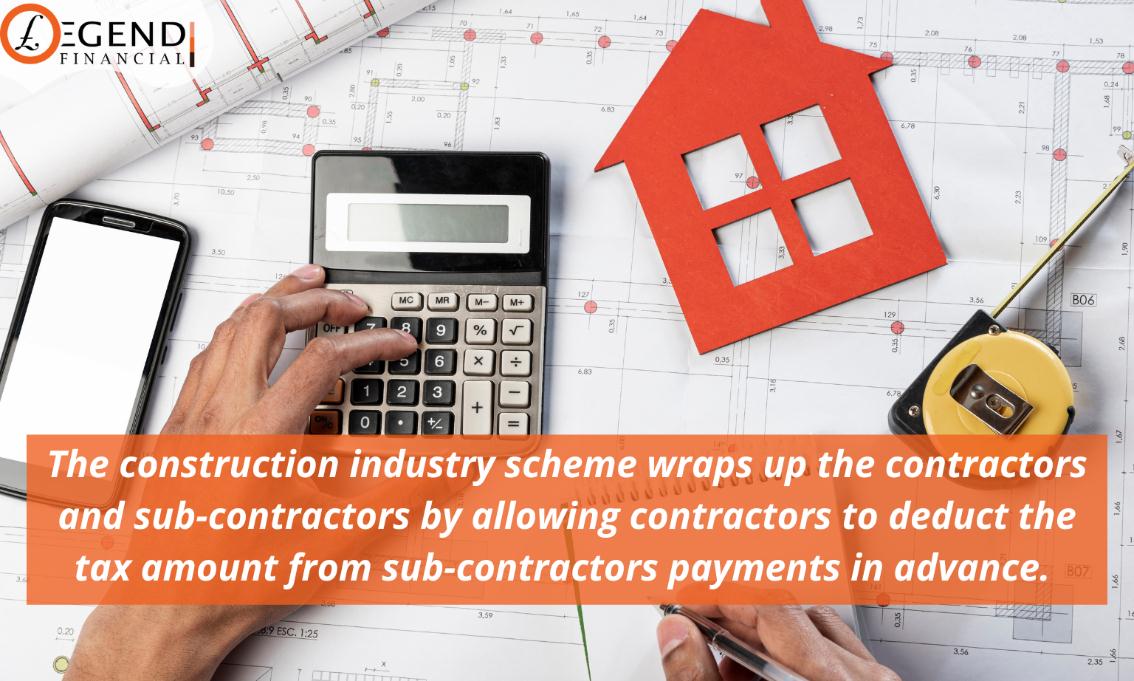In construction-related works, whether you are a contractor or subcontractor, it is mandatory for you to have a complete vision of the whole picture. What tax liabilities are in our range, and what things are directly considering your tax amount should be properly sorted?
In the case of a sole trader or a system through which contractors and sub-contractors are going having an eagle vision is compulsory to save your hard-earned money from CIS penalties and other deductions. Construction Industry Scheme is one scheme that needs to be highlighted in light of the mentioned consequences.
Scope
So, the question arises of the construction Industry scheme and its related scope. Or does it directly affect the people involved in the construction trade? The Construction Industry Scheme is all about associated taxes.
If a person is involved in the construction business, what are the basic requirements for holding money in his pocket and donating money in the tax jar- CIS tells us about all the sinks. The scheme's policy is regulated around the main contractors, sub-contractors, and end users who are finally paying for the services.
The deductions in the payments of the workers are either weekly or monthly, depending on the contract between the contractors and the sub-contractors. The tax or the payment deducted from the net payment of the workers is involved in paying their associated taxes, which include the income tax and the National Insurance Contributions that are finally submitted to HMRC “Higher Majesty's Revenue and Customs on their behalf.

The fundamental purpose behind paying the taxes and deducting them from the employees' payments lies in the central point to avoid chaos and have a systematic way for everyone to submit taxes on time.
There might be an issue that sometimes the sub-contractor does not have a good idea about the working rules and the liabilities or the specific tax application in the form of percentages. So before paying them the actual payment, the contractors deduct the tax liability from it to make the whole situation safe and free of confusion.
Have A Broad Picture of The Consequences
So, if a sub-contractor becomes interested in the details of the deduction or accounts for the amount deducted from the full payment, then the whole idea of CIS payment gets more visible. Let's suppose the net deduction of the amount was a specific amount. By registering for the Construction industry Scheme, the sub-contractors get a little edge from the tax liability.
The additional 10 % is not charged to their amount, and that's how they can save a pretty amount on their side. On the other hand, if the contractors deal with sub-contractors with little or no knowledge of CIS, they would be forced to pay that extra 10 %. So, the whole idea behind the article lies in maintaining the awareness graph and letting people know about their right to save and earn money at the same time.
If you grasp the idea that contractors have the 100% hold of the scheme, you might be incorrect. It is not like contractors can know anyone and push them into the boundaries of the CIS. The contractors have to redirect the sub-contractor details to HMRC and see if the person is liable for the job.
Contractors must be part of the CIS and then take hold of the construction projects on different sites because there's not only one thing associated with construction work. The contractor should be well aware of the different taxes associated with the goods and services.
Goods and Services in the Construction Trade
Let's take an example, a construction project comes. Now two essential things are required. The goods required for the construction material and the services which the sub-contractor will provide to manifest the goods for the construction material. The goods come with a different application of taxes in the name of VAT and VAT reverse charge.
The contractor should know about all the associated taxes. He should be well aware of different tax percentages and have the hold of the whole chain connected finally with HMRC. That's how proper construction work works. It is not just a building coming independently without doing mathematics and encountering accountabilities.
Penalty For the Contractor
The advance payments made by the contractors and the sub-contractors given in the name of NICs and income tax is all about securing the rights of sub-contractors in return. Don't assume at this point that the whole game lies in the hands of contractors because in case of any false dealing or incorrectly classifying the sub-contractors, the contractors are held accountable for all the dealings.

The HMRC charges the contractors a penalty because they are working under their umbrella. So, the CIS is a balanced scheme sheltering the rights of the sub-contractors and the contractors on a balanced scale of dealings. All of the dealings have the sole purpose of reducing fraud chances and giving everyone an equal environment for breathing.
Keeping Track of Deadlines
As discussed, the contractors take charge of the whole process and deduct payments from the sub-contractor's money. Once the 19th of the month approaches the due date, the contractors must submit the details of the salary offered to different sub-contractors with pertinent details of tax application on their earned amounts.
The submission of taxes should be made timely, as submitting even one-day pate before the due date means you have crossed the line, and the penalty is charged to the contractor for submitting the required amount late.
It's the point where the sub-contractor has an edge again as the amounts are deducted directly from their payments so they don't have to worry about the deadlines and the accountability process, whereas it is the foremost duty of the contractors to have a clear record of deadlines and to submit the collected amount in the name of taxes to the higher authorities which is HMRC. The penalty for charging once the date is passed is £100.
What To Do in Case of Fraud?
Simply approach the CIS helpline and let them know about the false happening. The system of CIS is well maintained. They will look deeper into the problem and try to figure it out based on the reasons and logical conclusions.
The projects that fall under the CIS are not private ones. Usually, they are screened throughout different organizations and then handled under the CIS. So, it limits the fraud over here as well. Nevertheless, CIS has a complete proof system to prevent fraud by grabbing the shoulders involved in the entire process.
All the organizations approved at certain levels are considered to fall under CIS. Different private construction works associated with the works at the government level also fall under the scheme. All the people working under the scheme are registered because HMRC holds the data of the people working under the scheme.
The benefits are distributed among people who are directly part of the scheme, and wholly or solely, it makes the construction work more organized by letting people work in their own space but under the umbrella of the HMRC to keep significant control.


